AI tools for quiky
Related Tools:

Quiky.Email
Quiky.Email is a free AI Email Generator tool that allows users to instantly generate draft emails powered by artificial intelligence. It is a user-friendly tool that simplifies the email writing process, offering features such as composing emails, responding to emails, creating sales outreach messages, suggesting subject lines, and sending follow-up emails. The tool supports multiple languages, customizes email tone and style, and is designed to enhance productivity and creativity in email communication across various domains like marketing, sales, customer support, and networking.

Quinyx
Quinyx is an AI-powered Workforce Management, Planning & Scheduling platform that helps businesses optimize their workforce, streamline scheduling, and engage frontline employees. It offers features such as demand forecasting, labor optimization, compliance checking, task management, and communication tools. Quinyx aims to enhance employee productivity, reduce scheduling admin time, and improve overall business performance through AI-driven solutions.

Midpage
Midpage is a legal research platform powered by Generative AI, designed to provide comprehensive legal research capabilities to students and professionals. The platform offers advanced features such as grid-based search, case filtering with AI, proactive annotations, and seamless integration of research into documents. Midpage aims to streamline the legal research process by leveraging AI technology to enhance efficiency and accuracy in analyzing legal cases and statutes.

Frantastique
Frantastique is an AI-powered adaptive learning platform that offers online French lessons for beginners to proficient learners. The platform provides personalized daily episodes infused with humor to explore the French language and culture. With a focus on culture, users can follow the lives of quirky characters through whimsical scenarios and improve their speaking skills by interacting with the hero of their Learning Series. Frantastique aims to make learning French fun and engaging, catering to individual interests, goals, and revision needs.

Dr. Tuning your Sim Racing doctor
Your quirky pit crew chief for top-notch sim racing advice

Dr. Lionel Veldeski
I'm Dr. Veldeski, a para-psychologist with a quirky, humorous style, specializing in the paranormal.

Winpilot
Winpilot is a tool that helps you remove bloatware, optimize your system, and improve your privacy. It has a hybrid web app foundation that allows you to remove AI features in Windows and provides you with access to various system information and settings. Winpilot can also be used to install and uninstall apps, change various settings, and access third-party plugins and scripts.
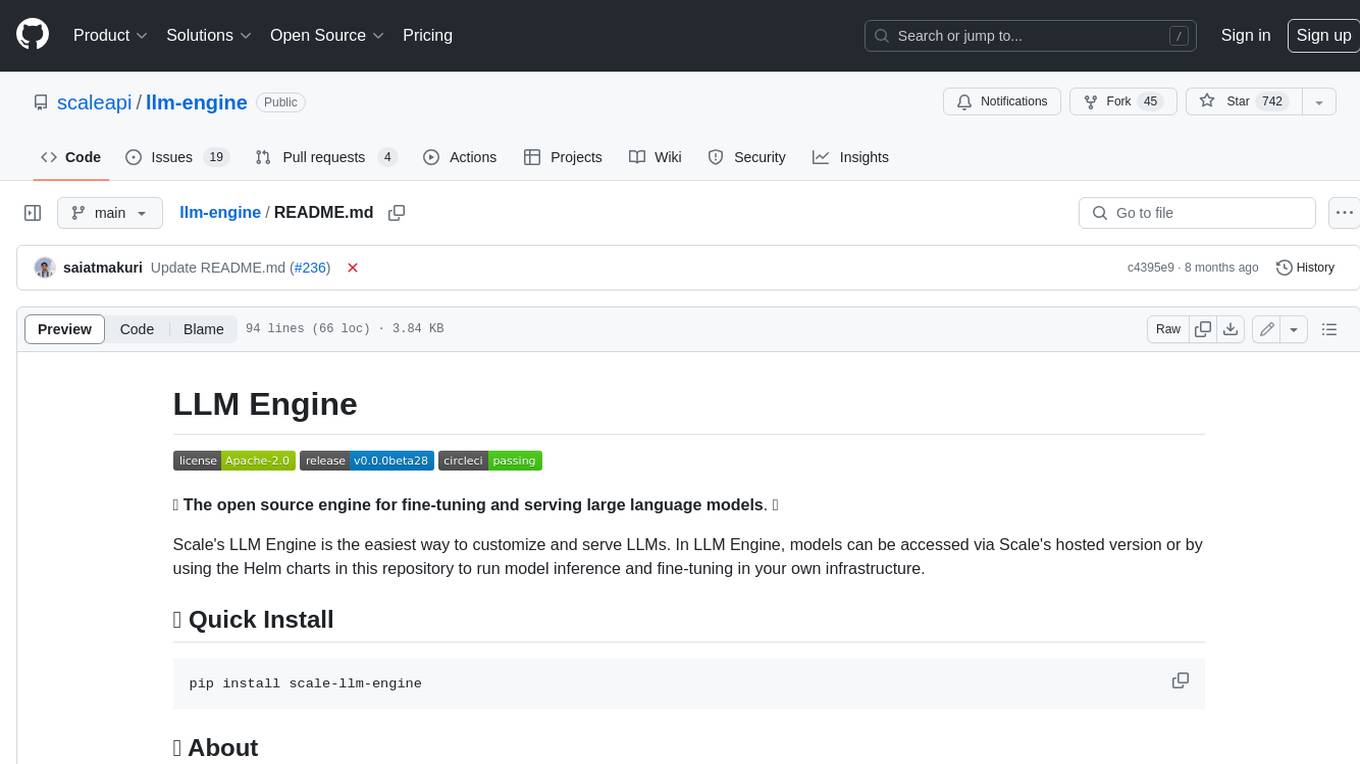
llm-engine
Scale's LLM Engine is an open-source Python library, CLI, and Helm chart that provides everything you need to serve and fine-tune foundation models, whether you use Scale's hosted infrastructure or do it in your own cloud infrastructure using Kubernetes.
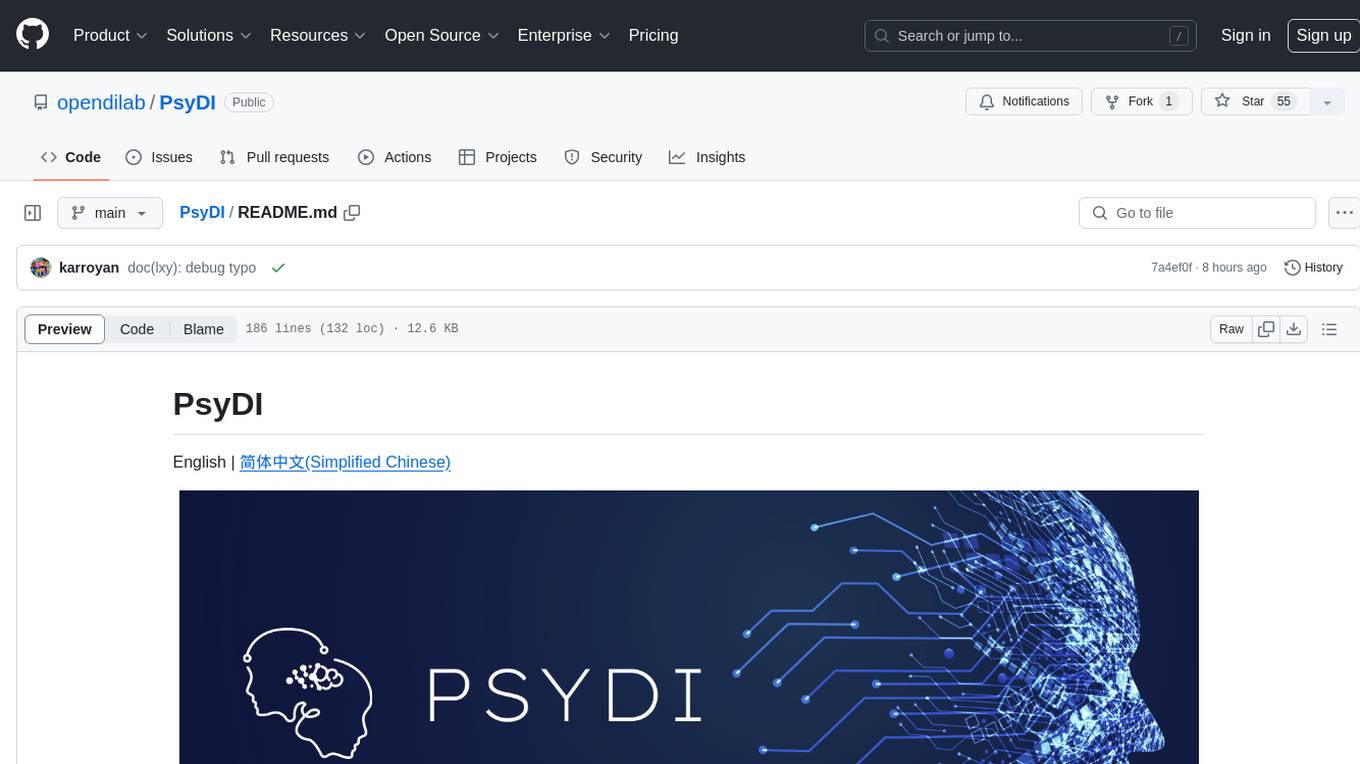
PsyDI
PsyDI is a multi-modal and interactive chatbot designed for psychological assessments. It aims to explore users' cognitive styles through interactive analysis of their inputs, ultimately determining their Myers-Briggs Type Indicator (MBTI). The chatbot offers customized feedback and detailed analysis for each user, with upcoming features such as an MBTI gallery. Users can access PsyDI directly online to begin their journey of self-discovery.
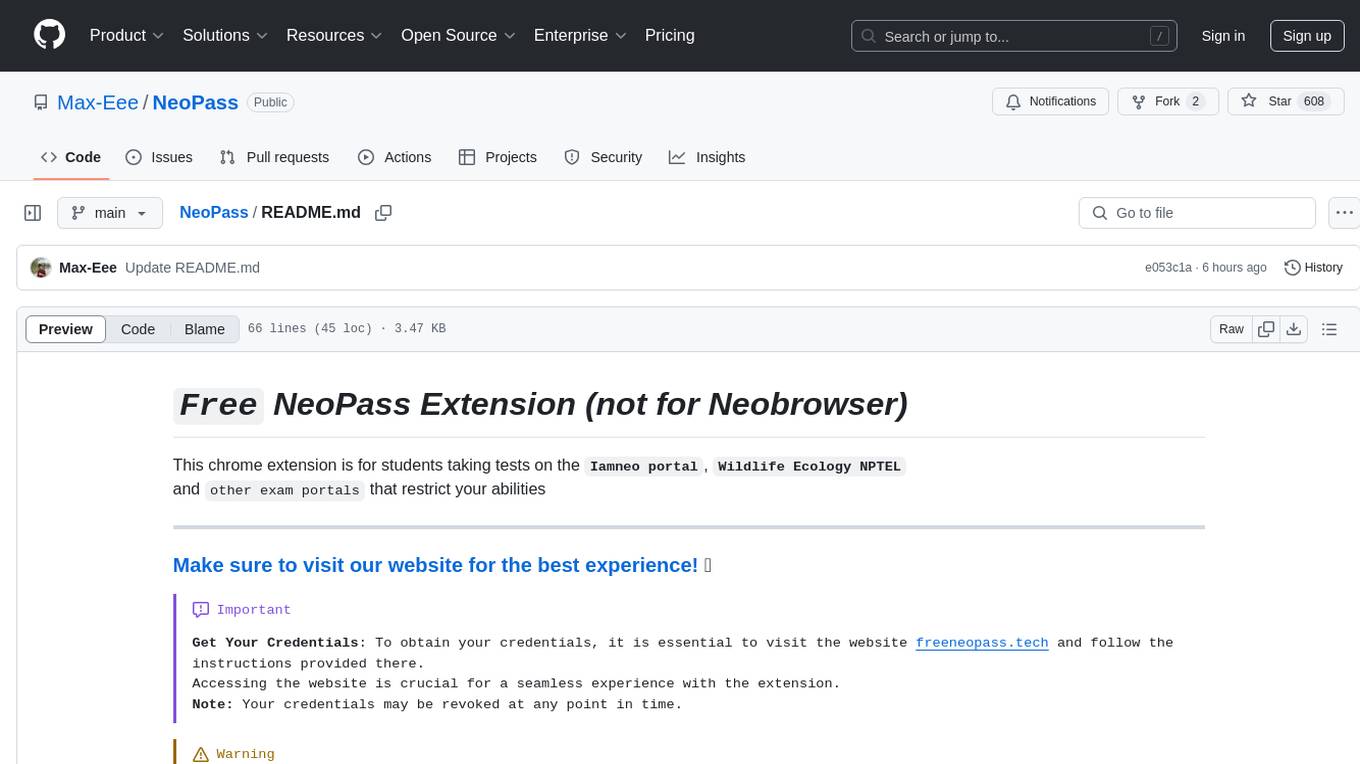
NeoPass
NeoPass is a free Chrome extension designed for students taking tests on exam portals like Iamneo and Wildlife Ecology NPTEL. It provides features such as NPTEL integration, NeoExamShield bypass, AI chatbot with stealth mode, AI search answers/code, MCQ solving, tab switching bypass, pasting when restricted, and remote logout. Users can install the extension by following simple steps and use shortcuts for quick access to features. The tool is intended for educational purposes only and promotes academic integrity.
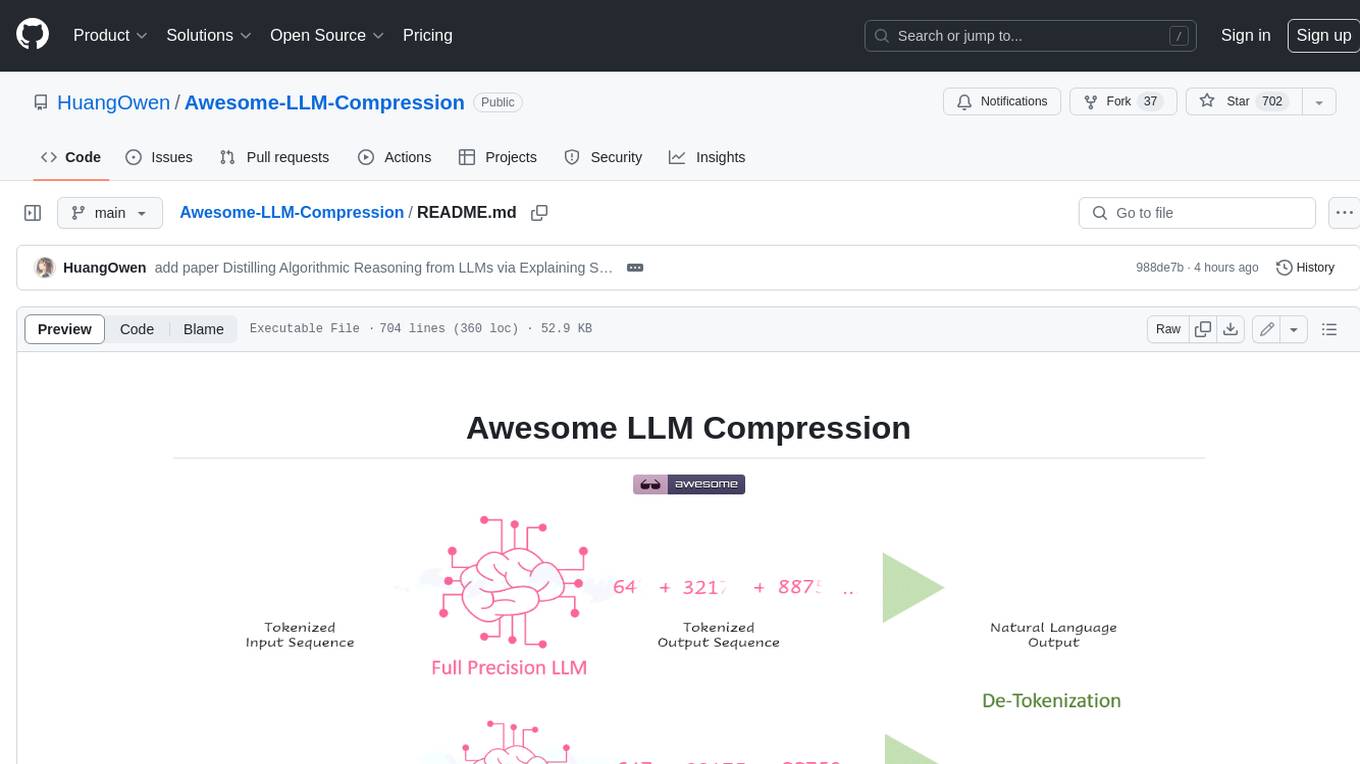
Awesome-LLM-Compression
Awesome LLM compression research papers and tools to accelerate LLM training and inference.
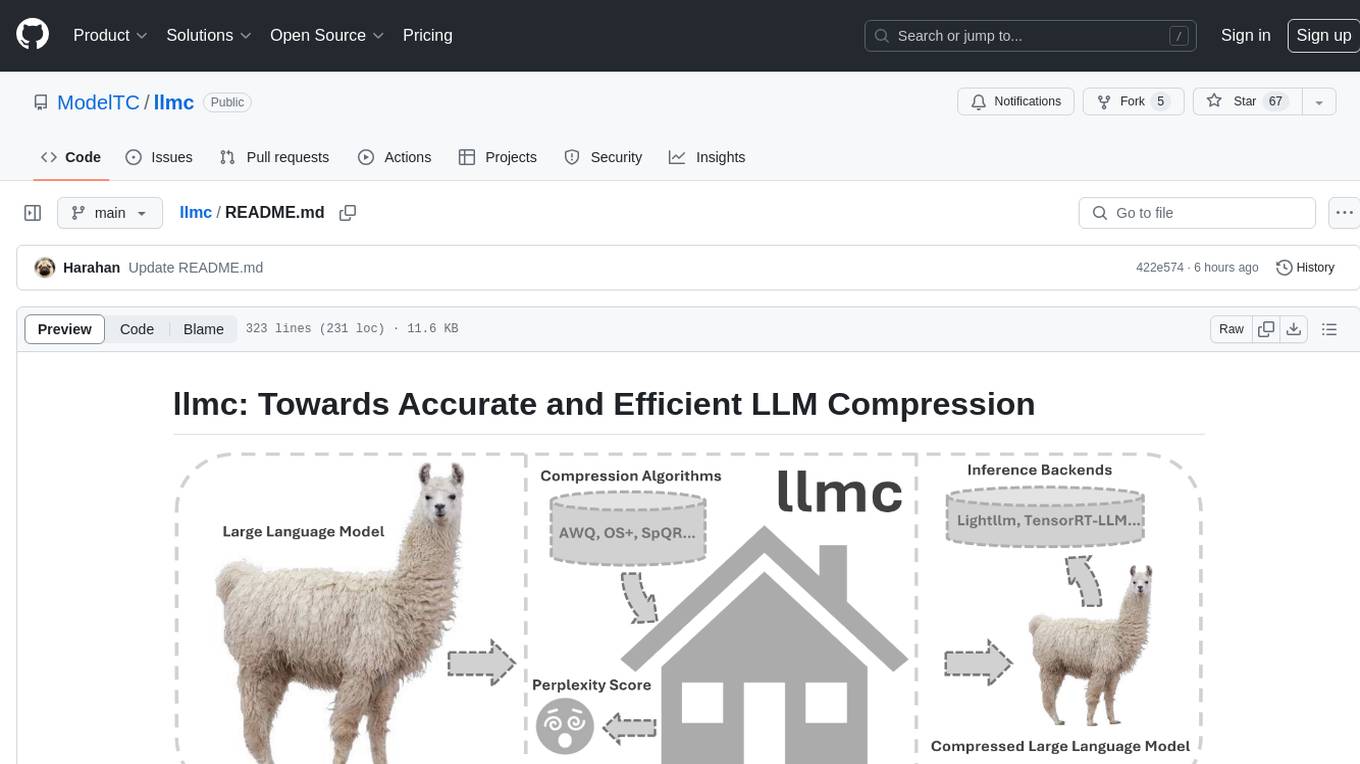
llmc
llmc is an off-the-shell tool designed for compressing LLM, leveraging state-of-the-art compression algorithms to enhance efficiency and reduce model size without compromising performance. It provides users with the ability to quantize LLMs, choose from various compression algorithms, export transformed models for further optimization, and directly infer compressed models with a shallow memory footprint. The tool supports a range of model types and quantization algorithms, with ongoing development to include pruning techniques. Users can design their configurations for quantization and evaluation, with documentation and examples planned for future updates. llmc is a valuable resource for researchers working on post-training quantization of large language models.
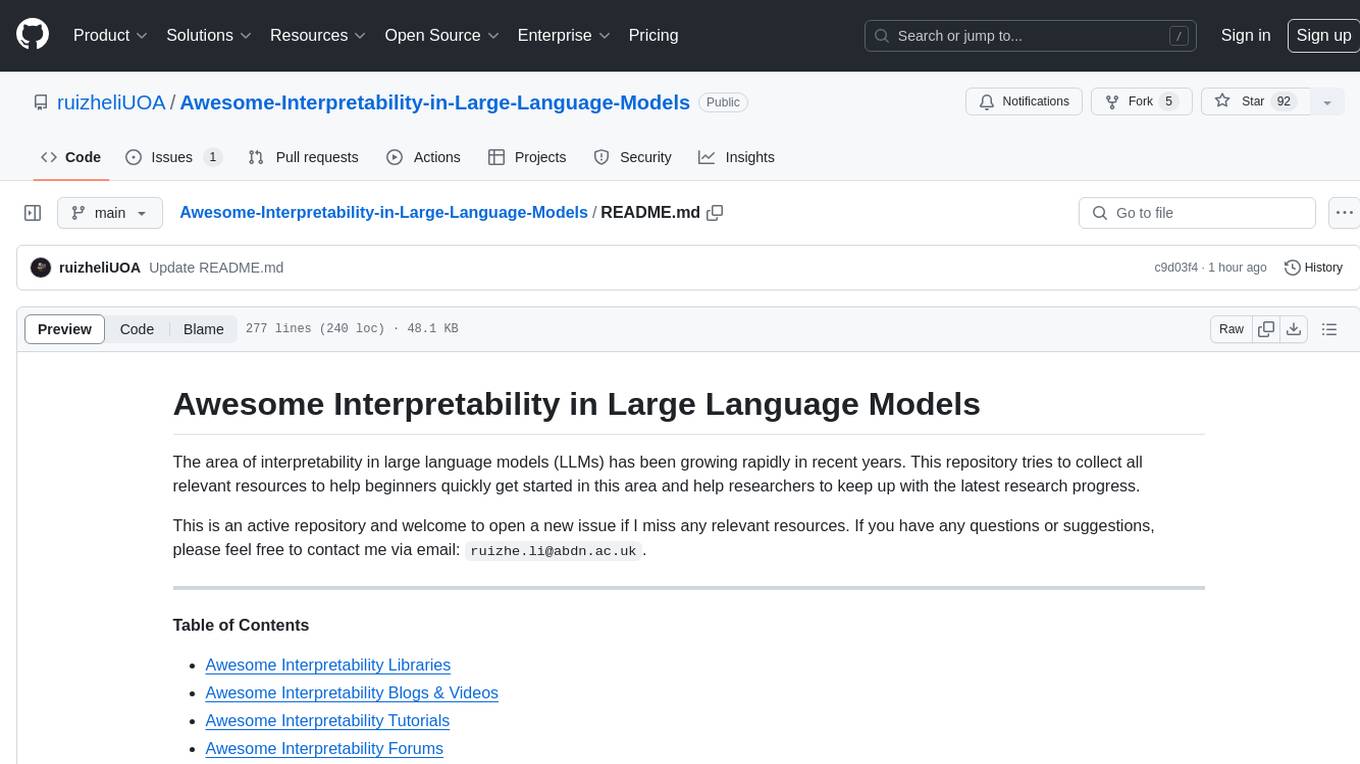
Awesome-Interpretability-in-Large-Language-Models
This repository is a collection of resources focused on interpretability in large language models (LLMs). It aims to help beginners get started in the area and keep researchers updated on the latest progress. It includes libraries, blogs, tutorials, forums, tools, programs, papers, and more related to interpretability in LLMs.
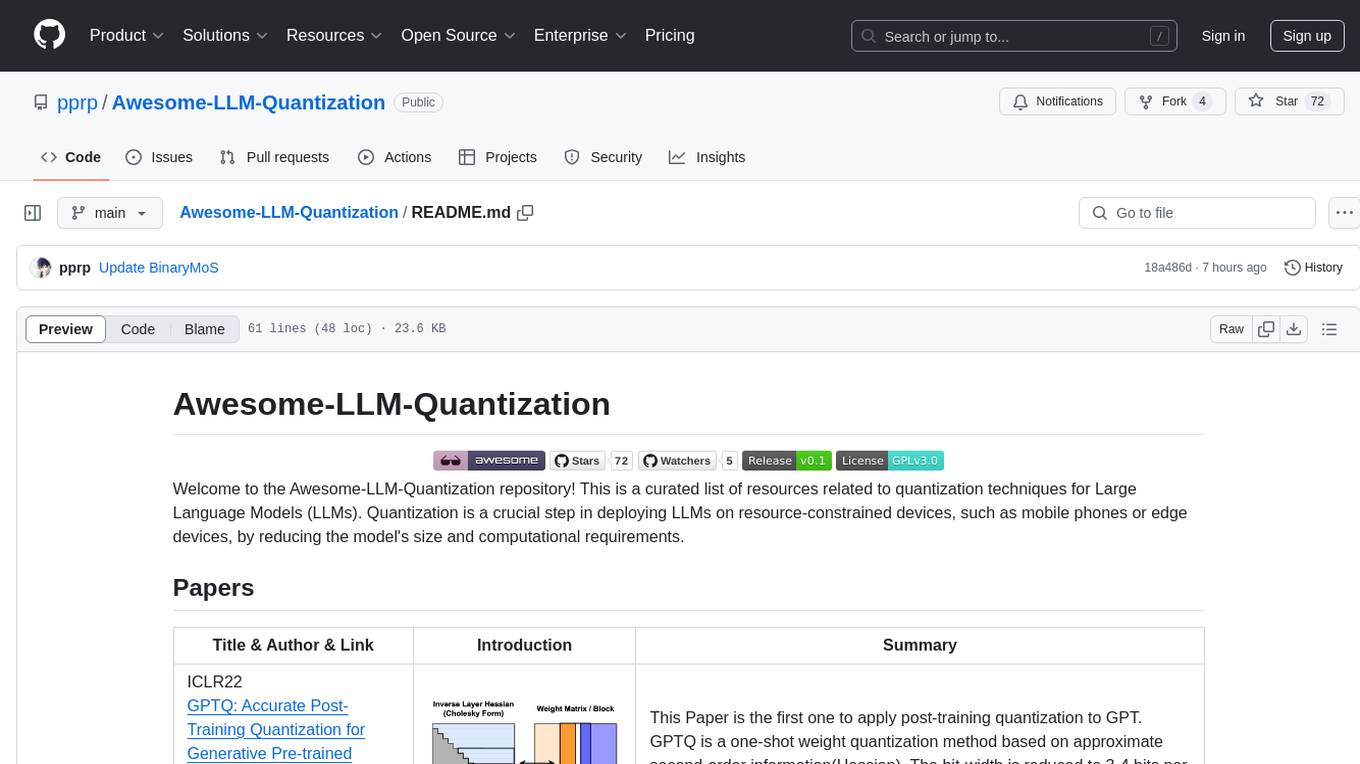
Awesome-LLM-Quantization
Awesome-LLM-Quantization is a curated list of resources related to quantization techniques for Large Language Models (LLMs). Quantization is a crucial step in deploying LLMs on resource-constrained devices, such as mobile phones or edge devices, by reducing the model's size and computational requirements.










